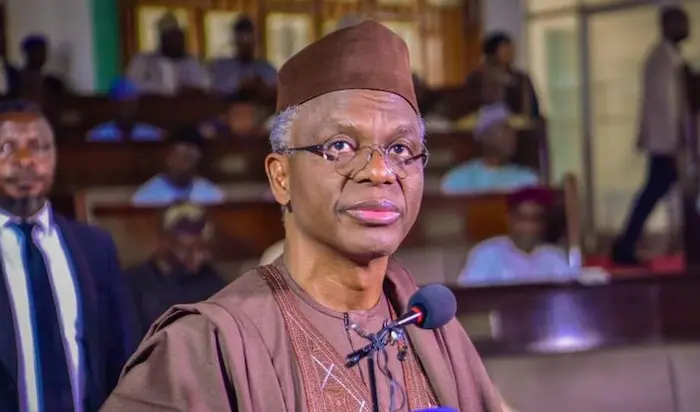Nigeria’s ruling All Progressives Congress (APC) has launched sharp criticism against Nasir El-Rufai, the former governor of Kaduna State, accusing him of hypocrisy following his recent political misfortunes. The party, in a post on its official social media platform X (formerly Twitter) on Friday, likened El-Rufai to a “stellar example of pointing one finger at others with four pointing back,” a metaphor suggesting his critiques of others reflect his own shortcomings. The statement further dismissed his rhetoric as “sound and fury” masking “hollow” substance.
El-Rufai, a founding member of the APC, had left the party in March 2024 to join the opposition Social Democratic Party (SDP), a move that drew attention amid Nigeria’s volatile political climate. His tenure with the SDP proved short-lived: by July, the party expelled him and imposed an unusually lengthy 30-year ban, citing unspecified violations of its constitution. The expulsion marked a dramatic fall from prominence for the former governor, who had governed Kaduna, a key northwestern state, from 2015 to 2023 under the APC banner.
The APC’s rebuke appears to reference El-Rufai’s history of public conflicts, both within and outside the party. During his time in office, he faced scrutiny over controversial policies, including mass dismissals of civil servants and clashes with federal authorities over fiscal autonomy. The ruling party’s social media post did not address specific grievances but instead framed his recent setbacks as self-inflicted, invoking a proverb El-Rufai himself had reportedly used in the past: “Never take people seriously who speak with sound and fury that only masks the harrowing hollowness they carry within.”
Observers note that El-Rufai’s political trajectory reflects broader tensions within Nigerian party structures, where defections and disciplinary actions are commonplace ahead of election cycles. His expulsion from the SDP—a minor opposition party—raises questions about his political future, though he has yet to publicly respond to the ban or the APC’s criticism. The 30-year prohibition, rare in Nigerian politics, effectively bars him from SDP participation until 2054, signaling severe discord between the former governor and his brief political home.
The APC, meanwhile, has sought to distance itself from El-Rufai’s legacy, implying his exit aligns with a broader pattern of unmet promises. Analysts suggest the public spat underscores the fragility of political alliances in a system often shaped by personal rivalries and shifting loyalties. As Nigeria approaches its next general election cycle, the fallout highlights the challenges facing both established and emerging parties in retaining influential figures while appealing to a populace increasingly disillusioned with elite infighting.
